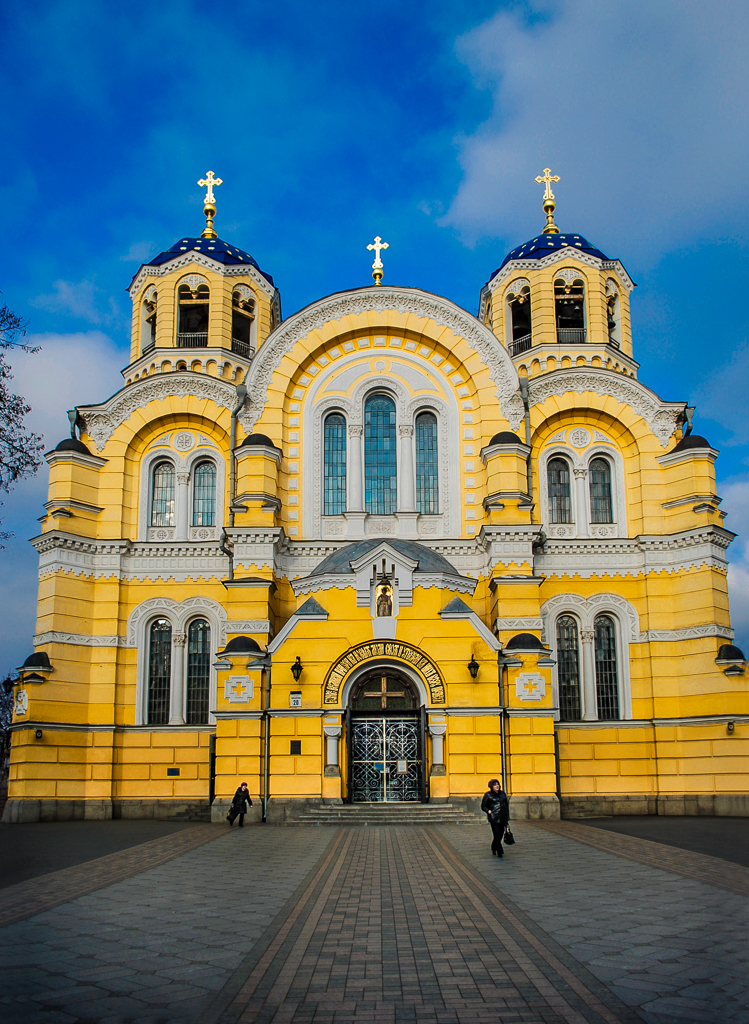History’s Echoes
As someone once said, history may not repeat itself but sometimes it echoes. And, like many this week, I felt history’s dissonant echoes in Russia’s invasion of Ukraine.
I’d spent some time in Ukraine a few years back, traveling from Kyiv to Odessa on the Black Sea, and then on to Kharkiv in the country’s east. One of the things that struck me was how different each of these cities were in some surprising and subtle ways. Kyiv, the cosmopolitan capital, felt very European in outlook and disposition. Odessa in the south was also cosmopolitan, with an international feel thanks to its position as a Black Sea port city. Its rich maritime history and impressive architecture suggested a bygone era of grand empires and colorful monarchs.
Kharkiv, in the far east of the country, had an entirely different vibe. Only twenty miles from the Russian border, there was a palpable feeling of ambivalence when it came to cultural identity. Whereas symbols of the communist past had been removed or whitewashed in other cities, Kharkiv proudly displayed a massive statue of Lenin in a central square that I walked through every day. Soviet block-style housing was still prominent, and the neighborhood where I stayed had all the signs of collective neglect. Many I spoke with in Kharkiv saw themselves as either ethnically Russian, or culturally Russian.
In Kyiv and Odessa, it was the opposite; most people I spoke with considered themselves proud Ukrainians. Here, they were wary of Russia and its proximity, and without exception, looked to the West and EU for the nation’s future. Back in Kharkiv, I was hard-pressed to find anybody who felt that way. They looked East, either out of fear for the Russian bear next door, or from a sense of history and inevitability. At least that was my superficial reading at the time.
Fourteen years later, I, like the rest of the world, am watching helplessly as Vladimir Putin’s forces try to slap Ukraine and its citizens back into the Russian sphere. Why Putin chose this moment to invade has much to do with his perceptions of the West’s weakness and disarray, while the overall decision to invade has everything to do with history.
The Ukrainians I spoke with generally understood that history. They pointed to long simmering grievances among many Russians with the way their nation was duped by the West after the fall of the Soviet Union. In this rendering, promises regarding NATO’s eastward expansion were broken as almost all the former Soviet republics to Russia’s west chose to point their new nations toward Europe. Many are now EU members and almost all are part of NATO. (…The exceptions are Bosnia-Hercegovina, Belarus, Serbia and Ukraine…) This brought the NATO alliance right up to Russia’s doorstep in places like the Baltics. Further south, Ukraine and Belarus were all that stood between Russia’s borders and NATO. And in Mr. Putin’s view, they would never become part of NATO.
Whatever truths might be extracted concerning promises kept and not kept, it’s useful to keep in mind the longer history behind the Russian obsession with NATO’s expansion. For starters, there’s still a long memory in Russia of betrayal and sacrifice during the Second World War. Lenin’s successor, Joseph Stalin believed the Molotov-Ribbentrop Pact would insulate him from Hitler’s territorial ambitions. Unfortunately, ‘Uncle Joe’ underestimated the Fuhrer’s madness and overestimated his word. As the Nazis took much of Eastern Europe, the way was cleared for grabbing the biggest prize of all, the Soviet Union, where the Wehrmacht could find all the oil it needed, much like the Japanese had done in occupying Borneo. Operation Barbarossa began in June of 1941 as German forces invaded Soviet territory and stalled in December as winter bogged Nazi forces down, allowing Stalin to launch a counter-offensive.
It could be argued that the seeds of eternal distrust and conflict were planted here, resulting in the long-memory that in many ways, still exercises the Russian soul. Let’s not forget that, by far, the Russians suffered the greatest losses in WWII — almost 24 million dead, either from starvation or actual war. By comparison, US losses were under a million while Germany lost just under 8 million. Little wonder then, that Stalin was reluctant to relinquish the Soviet Union’s territorial gains at the conclusion of the war. He felt Russians had paid the biggest price in the conflict and deserved to get something out of it. After all, he had to wait almost two years for the Allies to open up a western front in the war.
To Stalin and many other Russians, the US and England had chosen to let them ‘wear’ the Germans down before opening up the Western Front. This too became part of that ‘long-memory’ and added to the Russian sense that a bigger buffer was needed in their west to prevent any future invasions from Germany. As the Cold War came into play, that fear was transferred to NATO. All the while, resentment of The West became a guiding philosophy for men like Putin. When the Soviet Union finally dissolved in 1991, Putin and his ilk, found themselves at sea. They saw it as a final humiliation of what had once been a great empire and NATO expansion was like salt in the gaping wound.
Nursing these grudges has been like oxygen for men like Putin — Russian nationalists who stew in this deep and bitter resentment, using it to justify all sorts of chicanery, from the Caucasus to the Crimea. Now we can add Ukraine to that list.

Comments on This Post
cialis 10mg tabletsAuthor
cialis 10mg tablets
cialis 10mg tablets